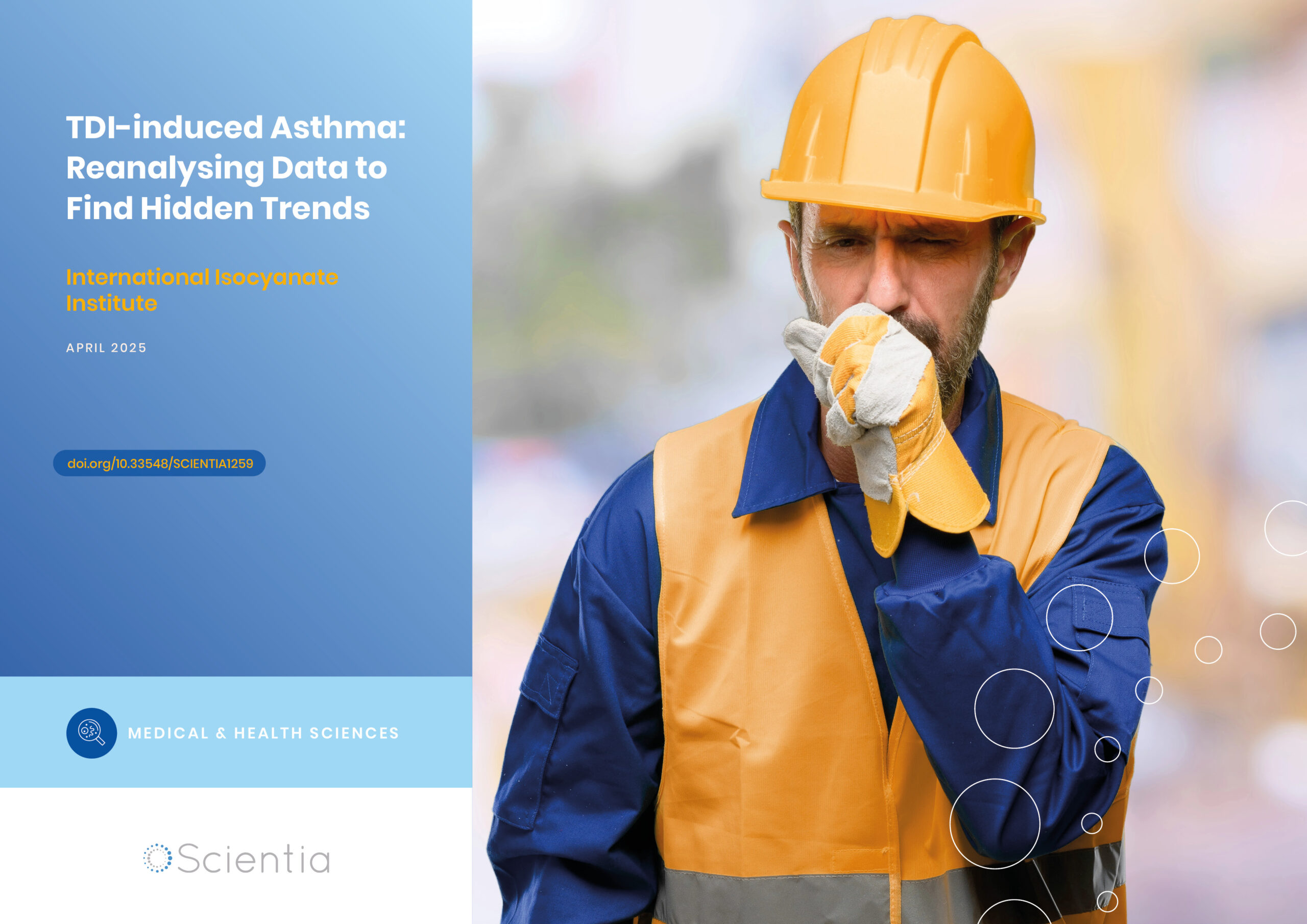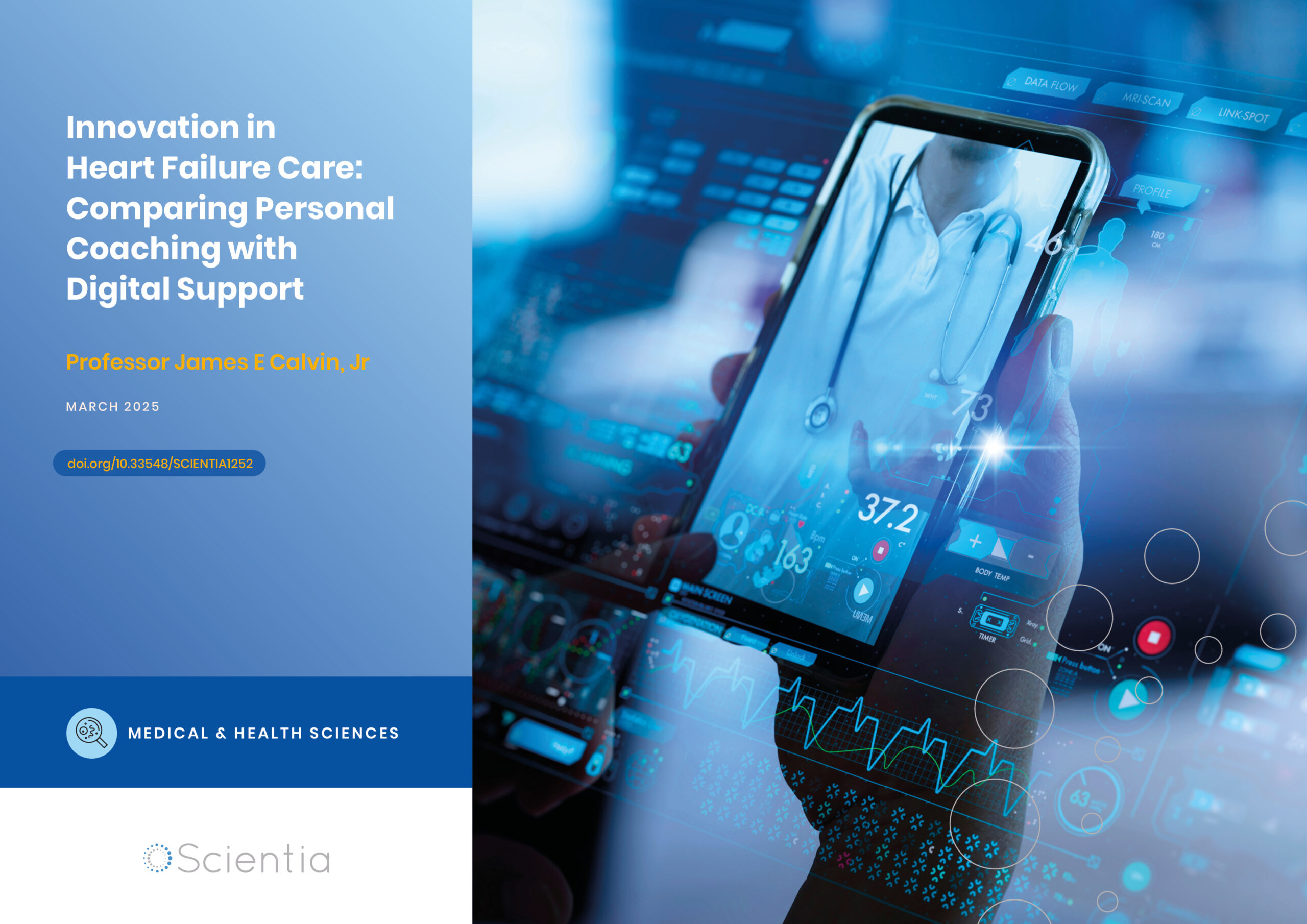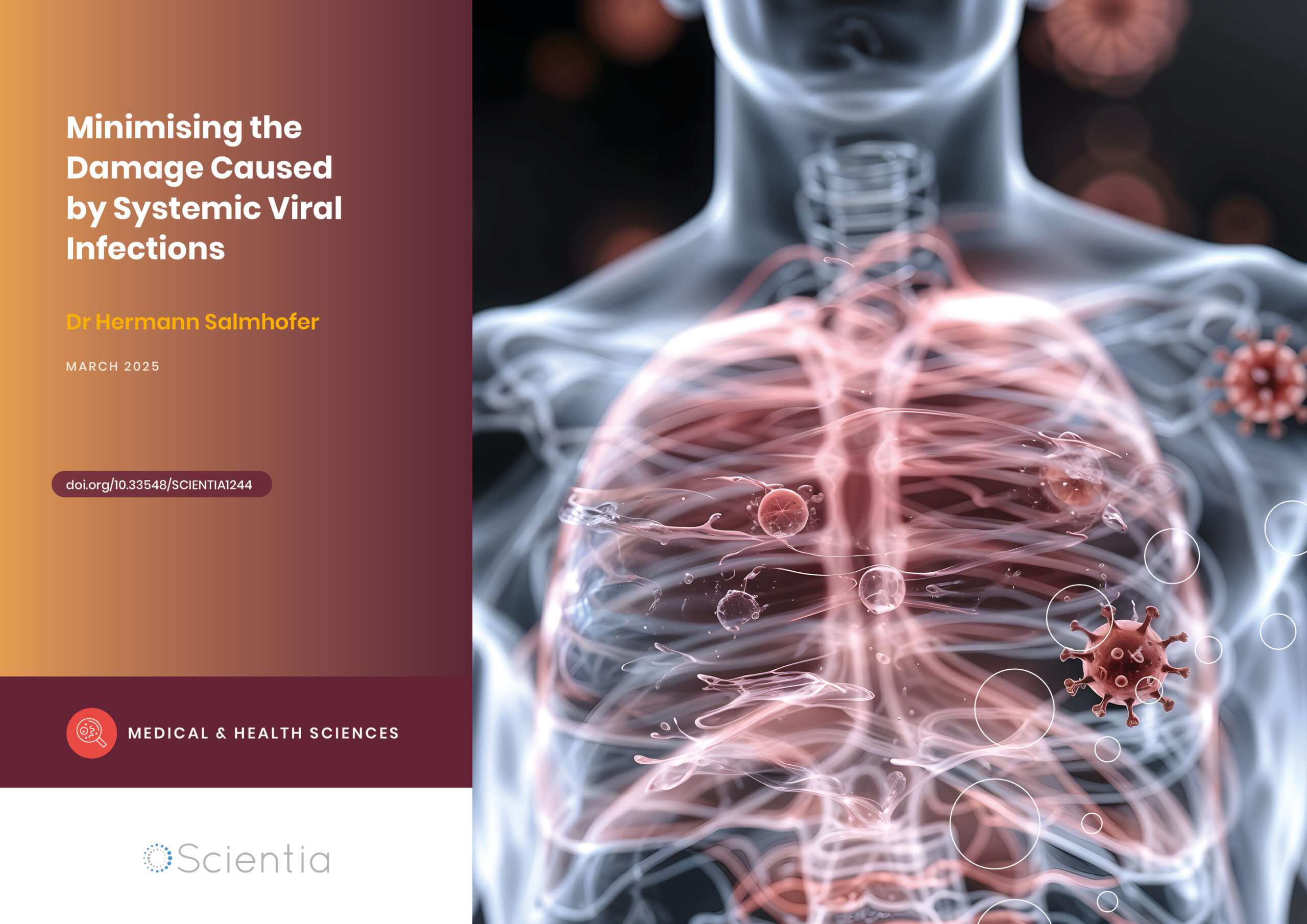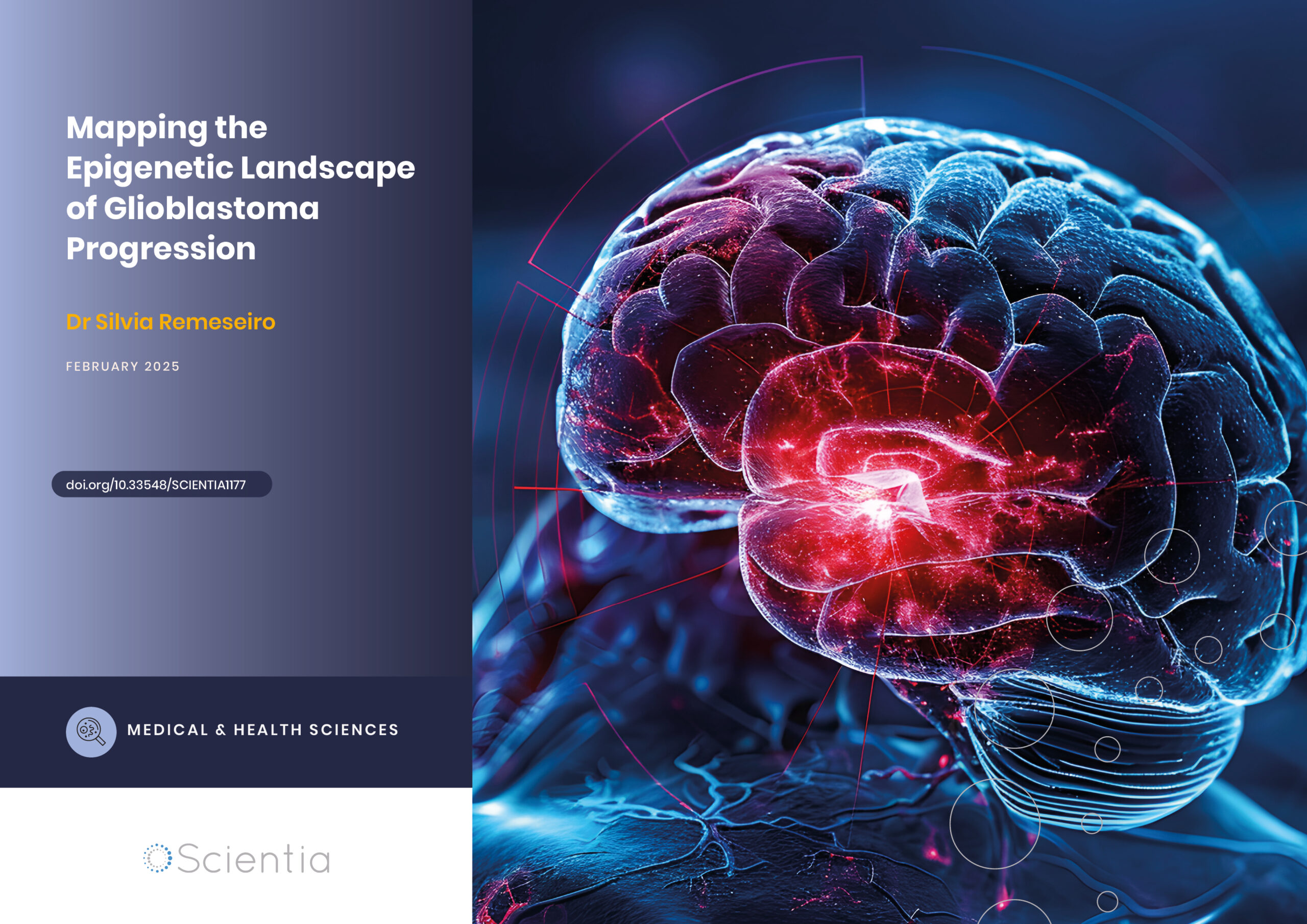Medical & Health Sciences

Dr Alyson J McGregor | Uncovering the Gender Gap in Medical Research: How Sex Differences Impact Healthcare Outcomes
Medical research has historically focused predominantly on male subjects, leading to dangerous gaps in our understanding of how diseases and treatments affect women. Dr Alyson McGregor from University of South Carolina School of Medicine Greenville has devoted her career to addressing this critical issue, highlighting how biological sex differences impact health outcomes. Her work demonstrates that ignoring these differences can have life-threatening consequences and advocates for more inclusive research practices to ensure safe and effective healthcare for everyone.

How Food Environments Shape Our Eating Habits
How we eat dramatically impacts our health, yet millions of Americans live in ‘food deserts’ – areas with limited access to fresh, nutritious food. Recent research reveals that solving this crisis requires looking beyond just physical access to food to understand how our entire community environment shapes our dietary choices. Through a series of pioneering studies, Dr Terrence Thomas and colleagues at North Carolina A&T State University have been investigating how different aspects of our food environment influence what we put on our plates. Their findings suggest that creating lasting change requires reimagining how communities engage with food at every level.

Dr Jim Wu | Ziresovir Offers New Hope for Treating Respiratory Syncytial Virus Infections
Respiratory syncytial virus (RSV) causes respiratory tract infections in children and adults. While for many patients the outcomes of infection are mild, for others, infection can prove fatal, and there is a lack of effective treatments. Dr Jim Wu from the Shanghai Ark Biopharmaceutical Company in China carries out his vital research to develop new, safe, and effective treatments to tackle this killer.

Dr Sandra Grumelli | The Importance of the Choline in Chronic Lung Infections
People with chronic lung conditions like COPD and cystic fibrosis are vulnerable to lung infections caused by the bacterium Pseudomonas aeruginosa. These infections are often difficult to treat and can cause sudden worsening of symptoms, known as flare-ups or acute exacerbations. While we know P. aeruginosa triggers inflammation and damage in the lungs, much less is understood about how exactly it causes these flare-ups, or how it survives in such a harsh environment. Dr Sandra Grumelli from the Center of Investigations of Respiratory Diseases in Argentina, has explored the role of a common molecule called choline which is released during infection. Using a combination of mouse models and laboratory experiments, she has discovered that choline not only makes breathing harder, it also helps P. aeruginosa adapt to and persist in the lungs. Her research opens up new possibilities for tackling chronic infections by targeting the bacteria’s energy use and the way it responds to its environment.

Can Your Personality Shield Your Mind From Ageing? How being open to new experiences might protect against cognitive decline as we age
Many of us have witnessed the troubling effects of ageing on the mind in older friends or family members – the forgotten names, the misplaced keys, the struggle to solve problems that once seemed simple. For decades, scientists have accepted cognitive decline as an inevitable part of growing older. But what if our personality could protect us from some of these changes? A remarkable 25-year study by Dr David Sperbeck, a neuropsychologist at North Star Behavioral Health Hospital in Alaska, has uncovered compelling evidence that certain personality traits might act as a shield against age-related cognitive decline.

AI-Based Video Monitoring of Movement Disorders: Improving Care for Patients with Parkinson’s Disease
As our global population ages, movement disorders like Parkinson’s disease present growing challenges for healthcare systems. Traditional assessment methods rely on subjective clinical ratings during brief clinic visits and often fail to capture the full picture of a patient’s condition. Professor Martin McKeown and his colleagues are pioneering innovative artificial intelligence approaches which use ordinary video recordings to objectively monitor movement disorders. These cutting-edge technologies promise to transform care for millions of patients by enabling remote, continuous assessment of symptoms, while reducing healthcare costs and improving quality of life.

Professor Nicola Curtin | Potential for Improving Cancer Treatment by Optimising Drug Scheduling
Cancers often develop because of faulty DNA repair systems. PARP inhibitors (PARPi) are a class of targeted anti-cancer drugs that exploit this weakness, by inhibiting a complementary DNA repair system, to selectively target the tumour. However, these medicines need to be taken every day, creating a burden on patients and reducing the options for combination with other anticancer therapies. Professor Nicola Curtin and her team at Newcastle University investigated how long different PARPi stay active in cancer cells after a single dose and how this influences their effectiveness when combined with another anti-cancer drug.

Feeding Bovine Colostrum to Chickens Creates Healthier Guts and Better Growth
A research team at the University of Maryland School of Medicine has discovered that a simple food supplement, specifically defatted bovine colostrum, can significantly enhance chicken gut health, reduce inflammation, and improve growth efficiency. The findings have implications for both animal welfare and human health under the One Health concept.

Dr Jiexin Deng | Optimising Warfarin Treatments for Chinese Patients
Warfarin is a commonly prescribed oral blood thinner used for the prevention and treatment of thromboembolic conditions. The wide variability in these conditions, that may range from deep vein thrombosis to heart valve replacement, adds to the complexity in determining dosing requirements among patients. Dr Jiexin Deng and colleagues at Zhengzhou Cardiovascular Hospital and Huaihe Hospital of Henan University in China have investigated the suitability of various pharmacogenetic algorithms based on different ethnicities to assist with warfarin dosing for the Chinese population, hoping to improve clinical outcomes and reduce the incidence of unwanted side effects.

Dr Henri Leinonen | Fighting Blindness with Drug Repurposing
For many types of inherited eye disease, there are currently very limited treatment options. These conditions, which are linked to distinctive genetic mutations, can eventually lead to blindness. Dr Henri Leinonen from the University of Eastern Finland leads a research team at the Leinonen Retina Laboratory investigating degenerative eye diseases and exploring drug therapies to treat these devastating conditions. This work is bringing fresh hope to millions around the globe.

Behind the Barrier: Targeting Immune Signals in Glioblastoma
Glioblastoma is one of the most aggressive and deadly forms of brain cancer, known for its rapid progression and resistance to treatment. Professor Louis Burton Nabors and Dr Natalia Filippova at the University of Alabama have highlighted the role of the immune system in this cancer, and in particular, a receptor called TREM1, which is involved in disease severity and progression. They developed a novel compound called SRI42127, which can block this pathway and reduce tumour growth in laboratory experiments. Their work shows that targeting the tumour’s immune support network may offer a promising new approach to developing effective therapies.

The Economic Case for Prevention: Michigan Research Team Shows Diabetes Prevention Programmes Pay Dividends
For decades, healthcare systems have focused primarily on treating diseases rather than preventing them. Now, groundbreaking research from the University of Michigan demonstrates that investing in prevention – particularly for type 2 diabetes – can improve health outcomes and significantly reduce costs. Their comprehensive studies provide compelling evidence that could reshape how we approach chronic diseases.

Fostering Innovation in Healthcare Through Collaborative Learning and Research
Healthcare systems worldwide face mounting pressures from rising costs, ageing populations, and increasingly complex patient needs. To address these challenges, researchers at the All-Wales Intensive Learning Academy for Innovation in Health and Social Care at Swansea University are exploring innovative approaches that deliver better value in healthcare provision. The team led by Dr Daniel Rees and Dr Roderick Thomas are leading efforts to develop new models of collaborative learning and research that bring together healthcare providers, industry partners, and academic institutions to drive innovation in health and social care.

Epigenetic Mysteries Unravelled: The Zinc-Finger Proteins
Exploring the complex mechanisms of cell development processes and DNA structure is critical to understanding how certain diseases, such as cancer, can arise. Professor Danny Reinberg and Dr Havva Ortabozkoyun from the University of Miami in Florida, USA, work to reveal the epigenetic mechanisms at play during cell division and development and, in turn, disease processes. Together, they are discovering new protein molecules involved in genome organisation, deepening our understanding of how cancers and other related conditions can develop.

International Isocyanate Institute | TDI-induced Asthma: Reanalysing Data to Find Hidden Trends
Even if you’ve never heard of them, you’ve used polyurethanes. Producing them requires toluene diisocyanates, which may/can induce asthma when inhaled. A 5-year study claimed to conclude that cumulative TDI exposure over time was indicative of asthma incidence. However, a reanalysis by a team at the International Isocyanate Institute points the finger instead at the frequency of unprotected high-exposure events, like accidental spills or plant maintenance. This finding guides the way for future advances in worker safety.

Training Deep Learning AI to Predict microRNA-Gene Interactions
Non-coding microRNAs (miRNAs) have important regulatory functions but are also implicated in various diseases. Mr Seung-won Yoon, PhD candidate at Chungnam National University, Republic of Korea, is training deep learning AI models to predict miRNA-gene associations. His research has implications for understanding disease pathogenesis, particularly cancer, and repurposing drugs for untreatable diseases.

Improving the Immune Response with Intraoperative Cell Salvage
Undergoing surgery comes with many risks. Numerous factors can influence the outcome, from the choice of anaesthesia to the type of operation. Long and complex procedures can require blood transfusions, which introduce yet another risk factor to the mix. Dr Michelle Roets from the Royal Brisbane and Women’s Hospital in Queensland seeks to help mitigate these risks through intraoperative cell salvage, a different type of blood transfusion which could revolutionise surgical outcomes.

Dr Wilber Sabiiti | Battling Tuberculosis whilst Maintaining the Respiratory Microbiome
In the world of respiratory health, treating tuberculosis infections is an ongoing challenge. Dr Wilber Sabiiti from the University of St Andrews in the UK, delves into the impact of various tuberculosis treatments on the intricate community of microorganisms residing in the respiratory tract. He explores the impact of seven different treatment regimens and their effects on the microbiome, which is crucial for maintaining respiratory health and well-being.

Proteins on the Move: Gateways into Mitochondria
Eukaryotic translation initiation factor 5A (eIF5A) is an essential translation factor found in nearly all living organisms. It helps ribosomes, the molecular machines that build proteins, in translating proteins containing specific amino acids. The lack of eIF5A is related to various diseases as well as ageing. Although eIF5A is known to be essential for mitochondrial function, the specific mechanism linking them has not yet been described. Professor Paula Alepuz and former PhD student Marina Barba-Aliaga (University of Valencia) work with Professor Brian M Zid (University of California San Diego) to investigate the fascinating world of eIF5A activity and its connection to mitochondria.

Dr Teresa Sanchez | The Enigma of the Vascular Endothelium: New Hope for Stroke Therapies and Beyond
The landscape of work is undergoing a radical transformation, with flexible arrangements and remote working becoming increasingly embedded in organisational culture. However, for the estimated 15-20% of people who are neurodivergent – including those with Autism Spectrum Disorder (ASD), Attention-Deficit Hyperactivity Disorder (ADHD), dyslexia, and other cognitive differences – navigating the workplace can present unique and sometimes overwhelming challenges. Researchers at the University of Bath have conducted the largest UK study of its kind, exploring how flexible working practices can support neurodivergent employees in the workplace, revealing both challenges and opportunities for creating more inclusive work environments.

Novel Actinium and Radium Nanoconstructs Show Promise for Targeted Cancer Radiotherapy
Targeted alpha-particle therapy is an emerging approach to treating cancer that aims to deliver radiation precisely to tumours while sparing healthy tissue. Dr Sandra Davern from Oak Ridge National Laboratory and her colleagues are at the forefront of developing new lanthanide vanadate nanoconstructs doped with alpha-emitting radionuclides for this application. Their recent work provides key insights into the structure and properties of these novel nanomaterials, paving the way for more effective radiotherapies.

Professor James Calvin | Innovation in Heart Failure Care: Comparing Personal Coaching with Digital Support
Heart failure remains one of the most challenging conditions facing healthcare systems today, with hundreds of thousands of new cases diagnosed annually. Professor James Calvin from Western University’s Schulich School of Medicine and Dentistry has led groundbreaking research comparing two innovative approaches to supporting patients: personal health coaches and smartphone reminders. His team’s findings suggest that combining human support with digital technology could transform how we help patients manage this complex condition.

Dr Hermann Salmhofer | Minimising the Damage Caused by Systemic Viral Infections
The mechanisms via which viral diseases infect and progress within the human body have become the subject of intense scrutiny since the emergence of the serious respiratory condition COVID-19, although many other viruses remain woefully under-researched. Recently, Dr Hermann Salmhofer and colleagues at the Paracelsus Medical University in Salzburg, Austria, have described the successful treatment of a harmful systemic virus affecting the kidneys, and suggest a possible new treatment target to mitigate the progression of the disease and prevent the development of permanent organ damage. Their findings, combined with broader research on viral infections, highlight the critical importance of both preventive measures and targeted treatments in managing viral diseases.

Revealing the Intricate Links Between Metabolism and Reproduction
The brain plays a vital role in controlling reproductive functions. It helps to maintain a delicate balance of hormones, all of which can be affected by the metabolism. Investigating the impact of the metabolism on reproductive development and function is critical to a better understanding of health and diseases. Professor Carol Fuzeti Elias and Dr Cristina Sáenz de Miera Patín from the University of Michigan in the USA, carry out groundbreaking research in neuroscience, exploring the molecular and neural mechanisms at play.

Beating Bladder Cancer: Novel Treatment Combinations with CDK4/6 Inhibitors
Cancer is one of the leading causes of death around the world. Research into this disease is vital to the development of new treatments, bringing fresh hopes to those affected by this potentially devastating diagnosis. Dr Roman Nawroth and Dr Ting Hong carry out their ground-breaking research at the Technical University of Munich in Germany. They focus their efforts on novel approaches to fight bladder cancer, exploring the use of CDK4/6 inhibitors.

Dr Silvia Remeseiro | Mapping the Epigenetic Landscape of Glioblastoma Progression
Glioblastoma, the most aggressive form of brain cancer, continues to challenge medical professionals with its poor survival rates. Recent groundbreaking research by Dr Silvia Remeseiro and her colleagues at Umeå University in Sweden has shed light on the complex epigenetic and chromatin-related mechanisms underlying the communication between neurons and glioma cells. This research opens new avenues for understanding and potentially treating this formidable disease.

Dr Markus Stumm | Advances in Screening for Genetic Abnormalities with Non-invasive Prenatal Testing
Non-invasive prenatal testing (NIPT) is a method of screening for genetic abnormalities in the unborn child through a simple blood sample taken from the mother. The non-invasive nature of the test has minimal to no risk to the mother and foetus and, since 2012, has been applied extensively around the world. As NIPT technology advances, Dr Markus Stumm of Medicover Genetics in Germany and his colleagues from Cyprus discuss the different techniques used, their strengths, their limitations and important considerations for pregnancy management.

New Directions for Reproductive Lifespan and Healthspan
Balancing starting a family with career goals is a difficult challenge many women have to face, which can lead to inequalities in various aspects of their lives. Dr Zhongwei Huang and the team at NUS Bia-Echo Asia Centre for Reproductive Longevity and Equality (ACRLE) are pioneers in reproductive health research. They work to improve female reproductive longevity and equality, exploring novel approaches to tackle fertility and conception problems, and ways to maintain optimal healthspan later in life.

Dr Markus Regauer | An Evidence-Based Perspective on Treating Severe Ankle Injuries
Ankle injuries are very common but notoriously difficult to treat due to the complexity of the ankle anatomy, compounded by the range of surgical options available. Dr Markus Regauer, a leading orthopaedic surgeon from SportOrtho Rosenheim and Schön Klinik Vogtareuth, worked with a team of clinicians and scientists at the Musculoskeletal University Centre Munich to thoroughly review the published literature. This was combined with Dr Regauer’s extensive surgical experience to produce a practical guide for surgeons to guide the best treatment for individual ankle (syndesmotic) injuries.

Professor Roger Harrison | New Approaches to Fighting Cancer: Annexin Proteins and Carbon Nanotubes
Cancer is a leading cause of death worldwide, and efforts to provide new and more effective treatments are critical. Professor Roger Harrison from the University of Oklahoma has developed new methods to target cancer using annexin proteins and carbon nanotubes. The annexin proteins allow tumour cells to be selectively targeted while healthy cells are spared. Combining these novel molecules with established options, such as immunotherapy, is proving very effective.

Mr Jack Latus | Novel Remote Monitoring Technology: Revolutionising Occupational Health Provision
The ever-growing applications of health technology have reached the world of occupational health. Mr Jack Latus from the Latus Group, based in the UK, endeavours to make the workplace safe, healthy, and productive. His company is one of the leading occupational health providers, paving the way for exploring new approaches to improve health in the workplace with pioneering technology to boost accessibility to occupational health services.

Dr Christopher DiMattina | The Mystery of Trypophobia – Why Clusters of Holes Make Some People’s Skin Crawl
The discomfort some people feel when looking at clusters of holes or bumps – known as trypophobia – has intrigued scientists for over a decade. New research reveals how this mysterious condition relates to our innate disease-avoidance responses. Dr Christopher DiMattina from Florida Gulf Coast University, together with his departmental colleague Dr R Nathan Pipitone, is leading research to understand why these innocuous patterns can trigger strong aversive responses, revealing important insights about how our brains process visual information and respond to potential threats.
